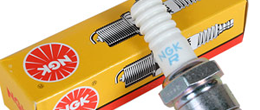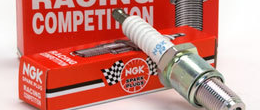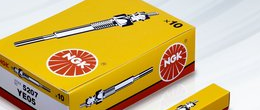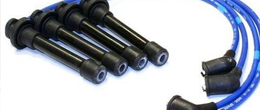Proper engine operation requires the following three conditions
Even when a good fuel and air mixture is supplied to an engine and good compression exists, the engine will not start without good spark production. A quality spark plug is a critical part in the production of good sparks; this Q & A Booklet is designed to provide you with technical information about spark plugs and instructions on how to use them.
Basic information
- What is the function of a spark plug?
- Why are NGK spark plugs superior?
- What is the heat rating of a spark plug?
- What do NGK part numbers signify?
- What is the best way to select the correct spark plug?
- Why is the firing end appearance of a spark plug important?
- What is the function of the corrugations on the insulator?
Information of various types of spark plugs
- What is a resistor spark plug?
- What is a V-grooved type spark plug?
- What is the Iridium IX spark plug?
- What is a racing spark plug?
- What kinds of spark plugs offer good resistance to carbon build-up?
- What are the features of special-type spark plugs?
Practical information
- What is spark plug fouling?
- What are the effects of spark plug overheating?
- What is good ignitability?
- Is a stain between the insulator and metal shell caused by gas leakage?
- Is there a specified tightening torque for the spark plug?
- In addition to correct heat rating, what other precautions should be taken during installation of spark plugs?
- How long will a spark plug last?





